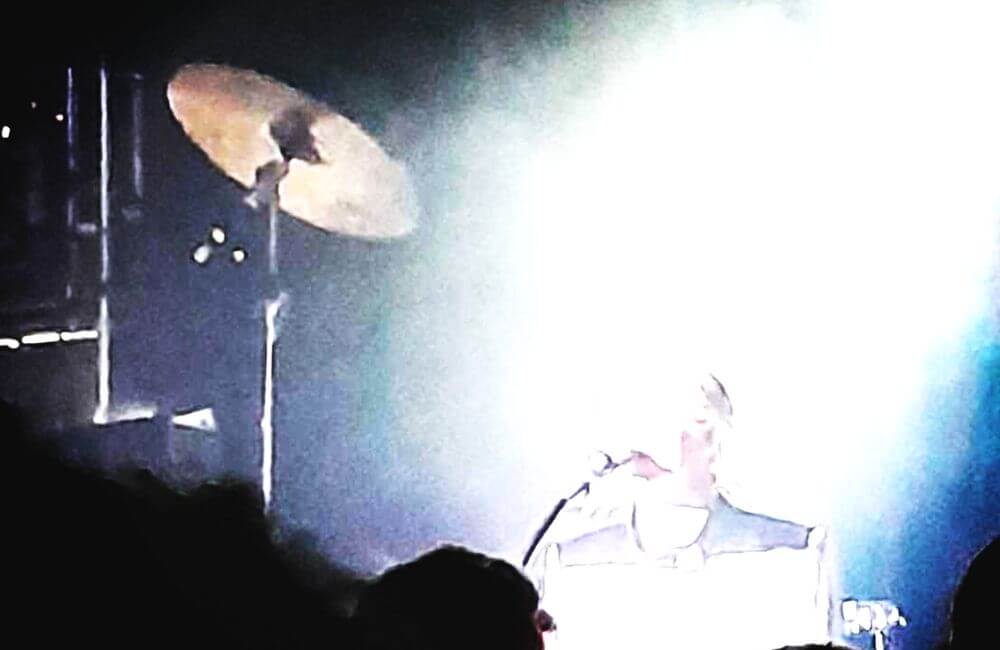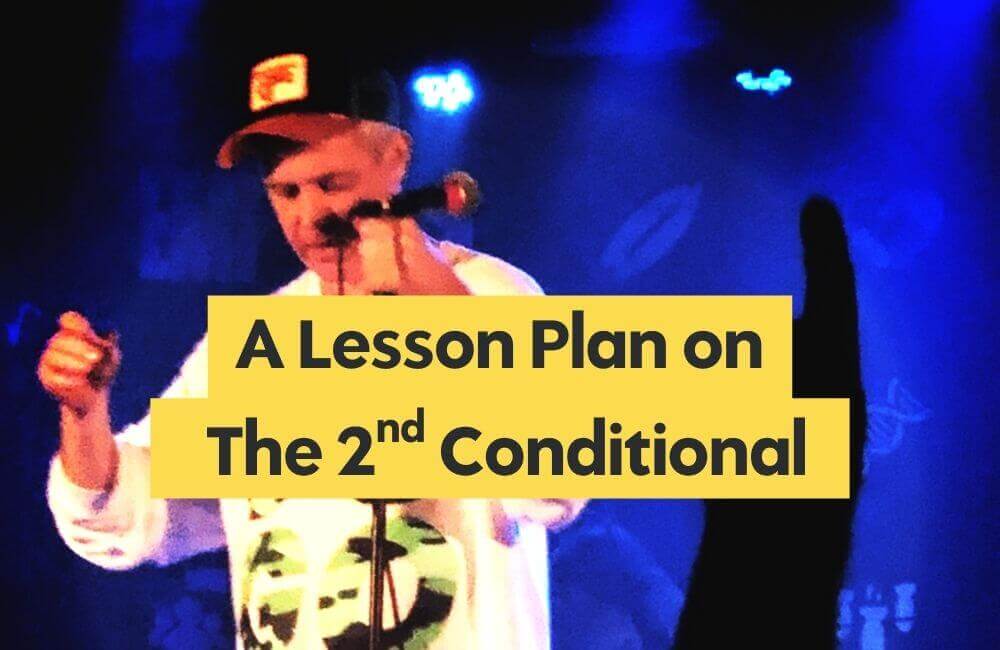A Rich Lesson Plan for the Present Perfect Tense
This blog is a celebration of live music and a ready-to-use lesson plan for English teachers who want richer conversations in class (and for learners who are tired of generic grammar exercises that don’t inspire them).
→ Have you ever queued all night for concert tickets?
→ Have you ever travelled to another city just to see a band?
→ Have you ever been disappointed by a live performance?
These kinds of questions are perfect for practising the Present Perfect tense — because they connect passionate real-life experiences to language.
At True Voice English, our conversation-based approach works especially well for creatives — artists, designers, architects, musicians and makers — but anyone who loves culture and wants more meaningful English practice will enjoy this lesson.
The Present Perfect Tense Lesson Plan
Don’t Rush
The questions above use the Present Perfect tense — perfect for teaching the tense through a conversation about live music and personal experiences.
But here’s the thing: don’t rush through them. Most language classes drill them with one present perfect question after the next, when in fact, the tricky part is knowing when to switch from the present perfect to the past tense.
If a student says, “Yes, I’ve travelled to another city to see a band,” the conversation doesn’t end there. That’s where it starts.
→ Where did you go? Who did you see? What happened at the gig?
Keep pointing out how the grammar naturally shifts: we move from Present Perfect (I’ve travelled…) into the Past Simple (I went to Berlin to see…).
That flow is exactly how English works in real life.
A Quick Review of the Present Perfect Tense
We use the Present Perfect (have/has + past participle) to talk about open time — a time that is not finished, or when the exact time is not important.
-
I’ve seen The Cure live three times. (My life isn’t finished — I could see them again)
-
I’ve already booked tickets for next summer. (The action is complete, but the time is still open).
-
I haven’t bought tickets yet. (The time period is still open — I still might)
-
Have you ever played in a band? (in your life, up to now)
The focus is on the connection to the present, not a finished moment in the past.
When we want to give details about finished time, we naturally switch to the Past Simple:
-
I’ve seen Nick Cave live.
-
Oh really? When?
-
In 2018, at a festival in Spain.
Part 2
A Kinetic Listening Exercise for Present Perfect
I find it useful to share 3 stories and have students raise their left hand when they hear the present perfect, and their right when they hear the past simple.
Here are 3 sample listening texts for this purpose.
“Yes, I’ve missed a gig I had tickets for. I’d been looking forward to seeing The Strokes for months, but on the day of the concert, my train was cancelled. I’ve never felt so frustrated standing on a platform! In the end, I arrived too late and the doors had already closed.”
Sara
“I’ve bought some expensive concert tickets before. The most I ever paid was for Radiohead in Milan. I had saved up for weeks. The tickets alone cost nearly £200 and the travel and hotel made it over a grand, but it was worth it — they played for almost three hours, and I’ve never heard a band sound so good live.”
Morgan
“I’ve seen Arctic Monkeys four times now. The first gig was in Glasgow when I was still a student. I went again a few years later in London, and once more in Madrid while travelling. The last time was just last summer, back in Glasgow again. Every show has been completely different, and I’ve loved each one.”
Jake
Part 3
Superlatives
Once you’ve warmed up with Have you ever…? questions, move into superlatives. These push students to reflect, compare, and share stronger opinions.
Here are some prompts:
-
What’s the best gig you’ve ever been to?
-
What’s the worst live performance you’ve seen?
-
Who is the most talented musician you’ve ever seen on stage?
-
What’s the biggest/smallest audience you’ve ever been part of?
-
What’s the longest journey you’ve ever made for music?
Again, the trick is not to rush. If someone says, “The best gig I’ve ever been to was Nick Cave in Edinburgh,” don’t just nod and move on.
Use it to elicit emergent language and learn something new about what that student cares about.
→ When was it? What made it so special? What did he play?
As with Part 1, you may need to remind the learner that the Present Perfect gives way to the Past Simple.
Do not correct any other errors.
Part 4
Making it Real
→ Have you been to any gigs this year?
Ask learners to open the photo album on their phone and share the last concert photo they have.
Others ask questions about the event.
→ Which musician have you never seen live — but always wanted to?
→ Which band have you seen the most?
→ Have you found any new bands through Spotify?
Which ones?
Why do you like them?
→ Have you ever heard anyone signing in English as a second language? Who?
→ Do you think you have to be brave to do that? (Could you imagine doing it?)
Describe this Video
What’s happening here?
“Last night at Gorilla in Manchester, the majority of the crowd sang along in French to Zaho de Sagazan...”
I spend a lot of time thinking about the toxic rhetoric around BREXIT (yes, still) and how damaging it was for our culture to shut down so many ways of sharing culture and ideas, and helping people with their English without ever advocating that they should speak English (I help if you need to – it’s not the same thing) (I think it sucks that you have to) so personally, this felt like finding light in a tunnel.
Sharing in case you don’t know this side of the UK either.”
Find Your True Voice
At True Voice English, we’ve seen how often creative people — artists, designers, musicians, architects, and makers — are pushed into English classes that never truly fit their needs.
Generic topics and uninspiring dialogues drain your energy. They take you away from the work that actually matters: your practice, your ideas, your art.
We believe language learning should never be separate from creativity. Instead, it should grow out of it, shaping the way you think, share, and connect with others.
That’s why our coaching doesn’t feel like a classroom. It feels like a creative process. We invite our clients to explore, experiment, and respond — all in English.
This 2nd conditional lesson is one example. Rather than a dry grammar exercise, it becomes a powerful framework for collaboration — helping you imagine possibilities, test ideas, and communicate them clearly across cultures.
Because when you’re working in a creative field, it’s not enough to “get by” in English. You need the nuance of real-life expression — whether that’s describing a what-if scenario, or even knowing the right colloquial word to capture being a bit too drunk at a gig.
Discover your year-round options for improving your English for Art Purposes — with courses and guided conversations designed for artists and designers, including:
-
Presentation Coaching
-
Sketchbook (a practice-led English method)
-
TEN Talks (real conversations with UK practitioners)




Recent Comments